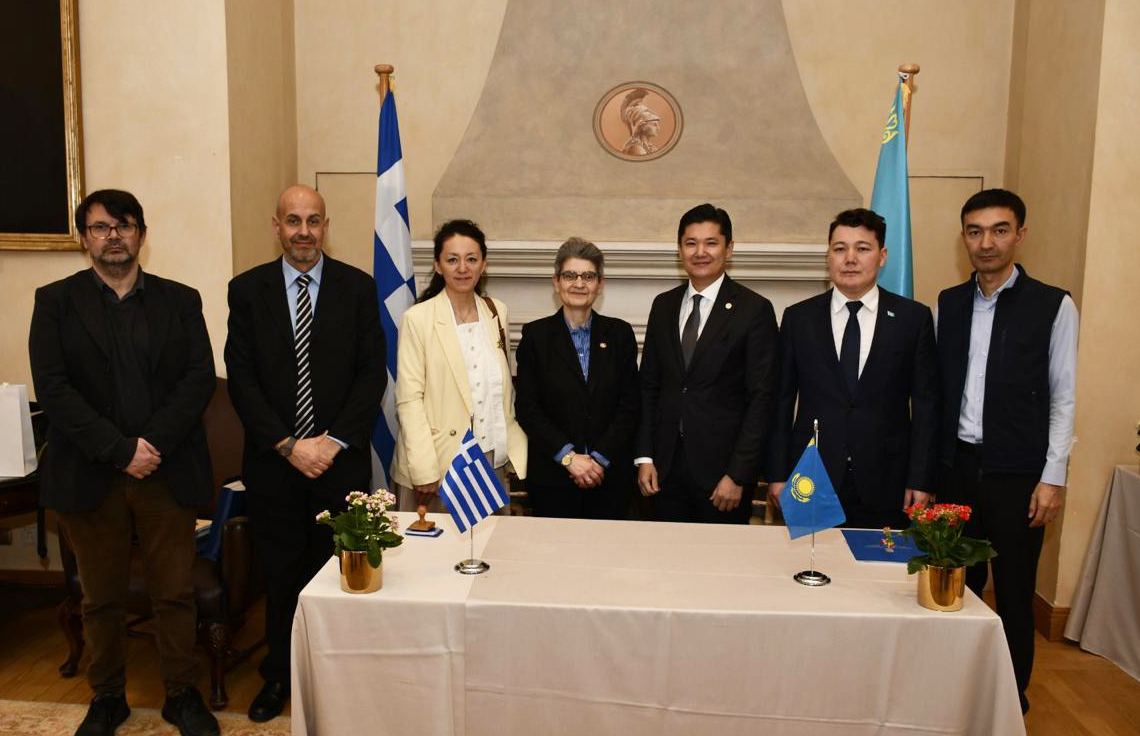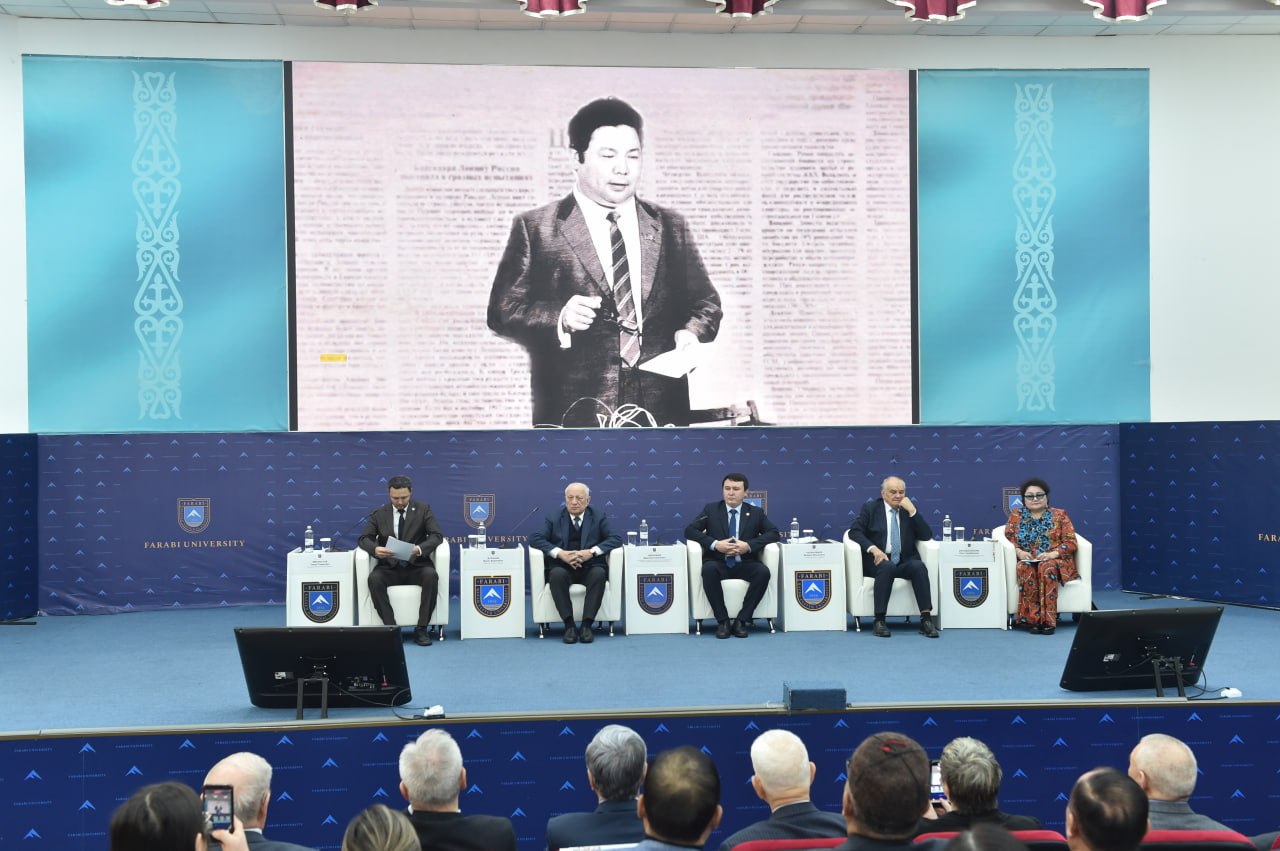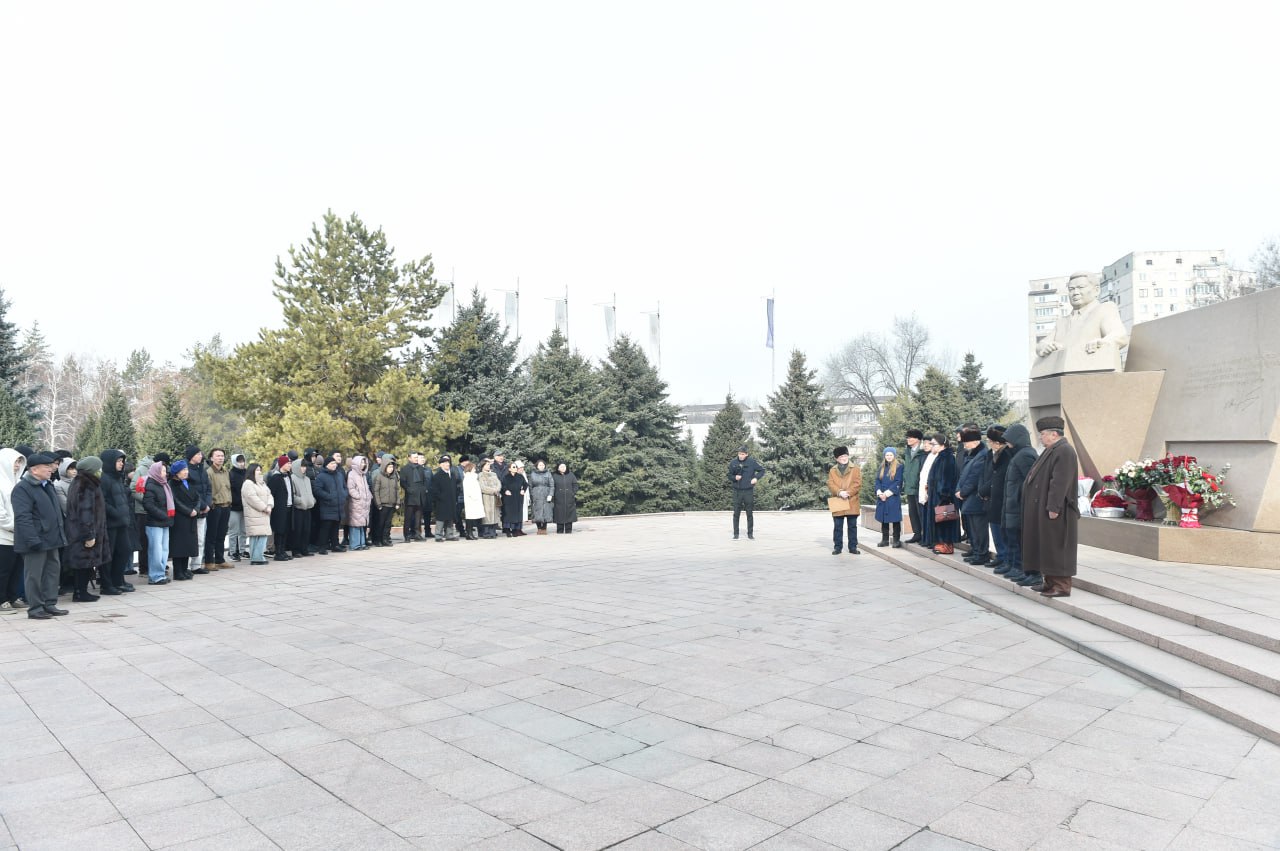- Main
- News
- On March 28, 2025, the Faculty of International Relations of Al-Farabi Kazakh National University hosted the international scientific and practical conference “Eurasian Union: Reality and Prospects. VII Ibrashev Readings”, which was also dedicated to the 30th anniversary of the Faculty of International Relations.
On March 28, 2025, the Faculty of International Relations of Al-Farabi Kazakh National University hosted the international scientific and practical conference “Eurasian Union: Reality and Prospects. VII Ibrashev Readings”, which was also dedicated to the 30th anniversary of the Faculty of International Relations.
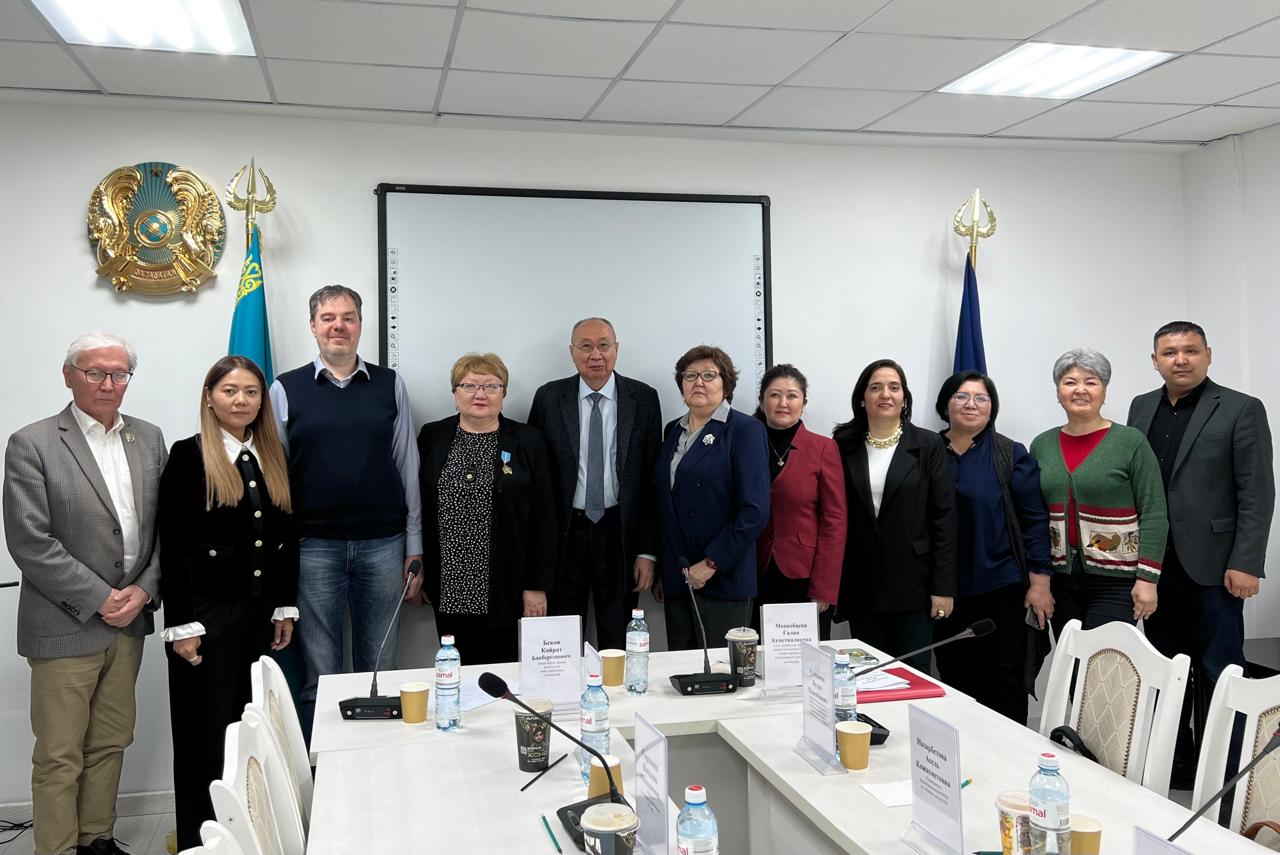
On March 28, 2025, the Faculty of International Relations of Al-Farabi Kazakh National University hosted the international scientific and practical conference “Eurasian Union: Reality and Prospects. VII Ibrashev Readings”, which was also dedicated to the 30th anniversary of the Faculty of International Relations.
This event holds special significance and status for the Faculty of International Relations. Professor Zharas Umarovich Ibrashev was the founder of the “International Relations” specialization in Kazakhstan, the founder of the Faculty of International Relations at Al-Farabi Kazakh National University, a renowned scholar, and the founder of a scientific school of French studies, European studies, and Eurasian integration research.
The aim of the international conference was to discuss theoretical and applied aspects of the interdisciplinary study of integration processes in Eurasia, as well as to examine international integration experiences from different regions.
Representatives of diplomatic and consular structures of the EAEU countries participated in the international scientific and practical conference. The event brought together leading experts, diplomats, and scholars from Kazakhstan, Russia, Belarus, Kyrgyzstan, and Armenia. The discussions covered pressing issues of Eurasian integration, geopolitical challenges, and prospects for economic cooperation within the EAEU.
The opening speeches were delivered by Kairat Bakbergenovich Bekov, Deputy Dean of the Faculty of International Relations of Al-Farabi KazNU, Almasha Arystanovna Arenova, Head of the Department of Political Cooperation of the Representative Office of the Ministry of Foreign Affairs of the Republic of Kazakhstan in Almaty, and Galiya Akhmetvalievna Movkebayeva, Director of the Scientific Research Center for Eurasian Studies.
During the plenary sessions, keynote presentations included Aleksei Bogdanov, Ambassador Extraordinary and Plenipotentiary of the Republic of Belarus to Kazakhstan, with a report on “Priorities of the Republic of Belarus’ Chairmanship in the Bodies of the Eurasian Economic Union in 2025”, which became the basis for discussions on the latest trends in EAEU development; Bulat Sultanov, Director of the Institute for International and Regional Cooperation at the Kazakh-German University, on Kazakhstan’s policy in the context of global turbulence; and Larisa Khopyorskaya, Head of the Eurasian Studies Center at the Institute of Sociology and Regional Studies of the Southern Federal University (Rostov-on-Don, Russia), on new strategies for the global order.
Particular interest was sparked by speeches on Kyrgyzstan’s role in the EAEU (Baktykan Torogeldieva, Professor at the Academy of Public Administration under the President of the Kyrgyz Republic named after Jusup Abdrahmanov, Head of the Research Department “Public Policy and Governance,” Bishkek), prospects for Eurasian integration (Jak Manukyan, Head of the Department of International Relations and Diplomacy, Yerevan State University, Yerevan), issues of the Union State (Olga Lazorkina, Analyst at the Belarusian Institute for Strategic Studies, Minsk), cooperation between academic research institutions and public organizations of EAEU member states (Olga Volkova, Doctor of Sociological Sciences, Professor, Chief Researcher of the Department for the Study of Socio-Demographic Processes in the EAEU, Institute for Demographic Studies of the Federal Research Sociological Center of the Russian Academy of Sciences, Moscow), and Kazakhstan’s participation in integration processes (Andrei Chebotarev, Director of the Center for Current Research “Alternative,” Almaty).
Within the framework of the conference, discussions also covered geopolitical changes affecting the Eurasian vector of Kazakhstan’s foreign policy (Professor K.I. Baizakova, Faculty of International Relations and World Economy, Almaty) as well as current challenges and risks in the context of geopolitical transformations in Eurasia, including issues of security, trade and economic cooperation, and the humanitarian sector (Professor G.A. Movkebayeva, Faculty of International Relations and World Economy, and migration processes (Associate Professor L.F. Delovarova, Faculty of International Relations and World Economy). The main directions of integration within the EAEU (Associate Professor of the Department of International Relations at L.N. Gumilyov Eurasian National University, Astana) and the economic achievements of the EAEU (Professor M.A. Auhan, Faculty of International Relations and World Economy) were also discussed.
The conference concluded with an active discussion in which participants exchanged views on the further development of Eurasian integration. The key conclusions of the event emphasized the importance of scientific dialogue and interstate cooperation in shaping sustainable integration processes.
As a result of the conference, recommendations and a resolution were developed regarding the further development of a multi-level scientific and expert dialogue on Eurasian integration issues.
The conference was organized by the Scientific Research Center for Eurasian Studies at Al-Farabi Kazakh National University. The organizers of the event were: Doctor of Historical Sciences, Professor Galiya Akhmetvalievna Movkebayeva, G.S. Baikushikova, and L.F. Delovarova.
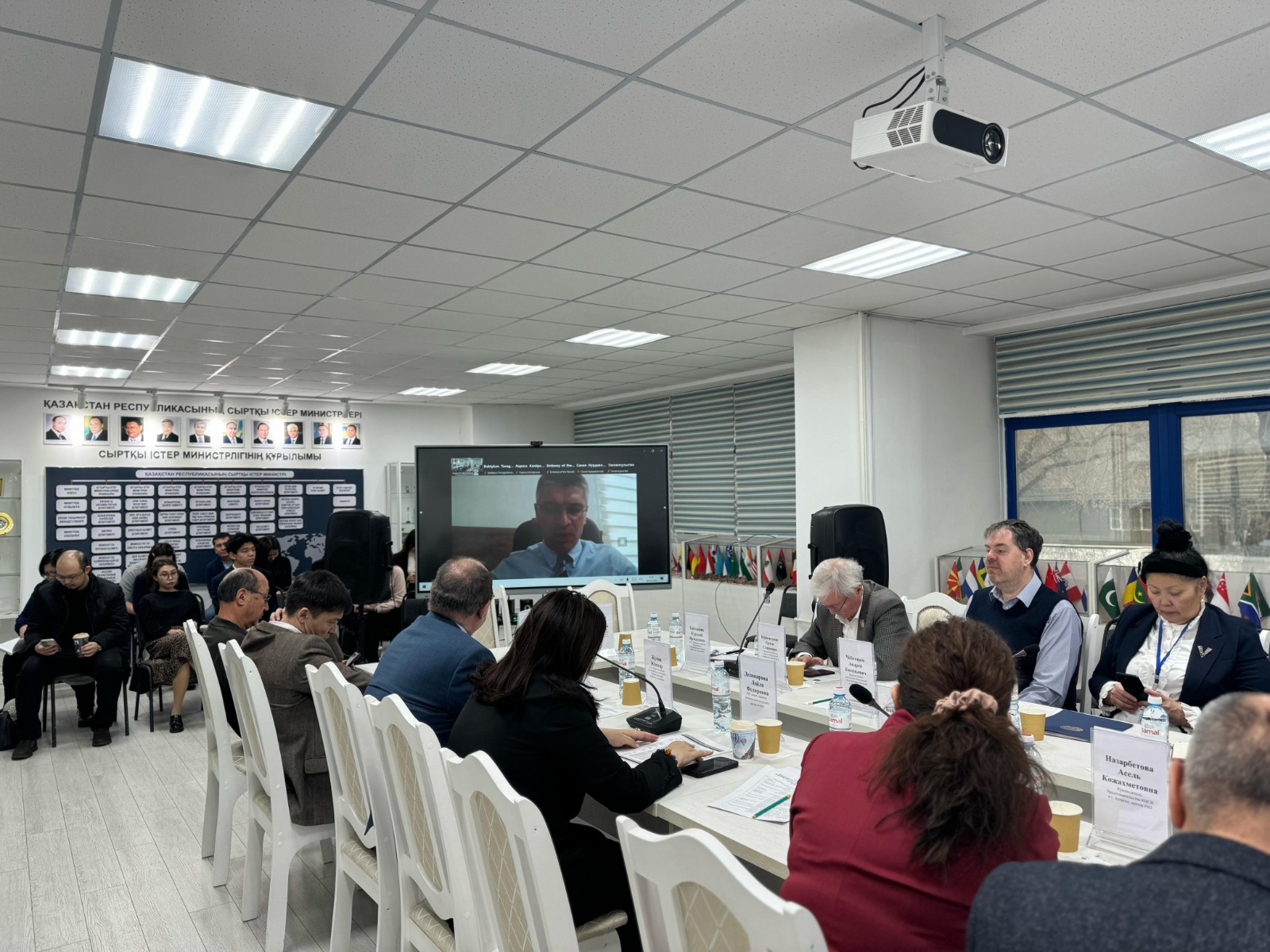
.jpeg)
.jpeg)
.jpeg)
.jpeg)
.jpeg)
.jpeg)

